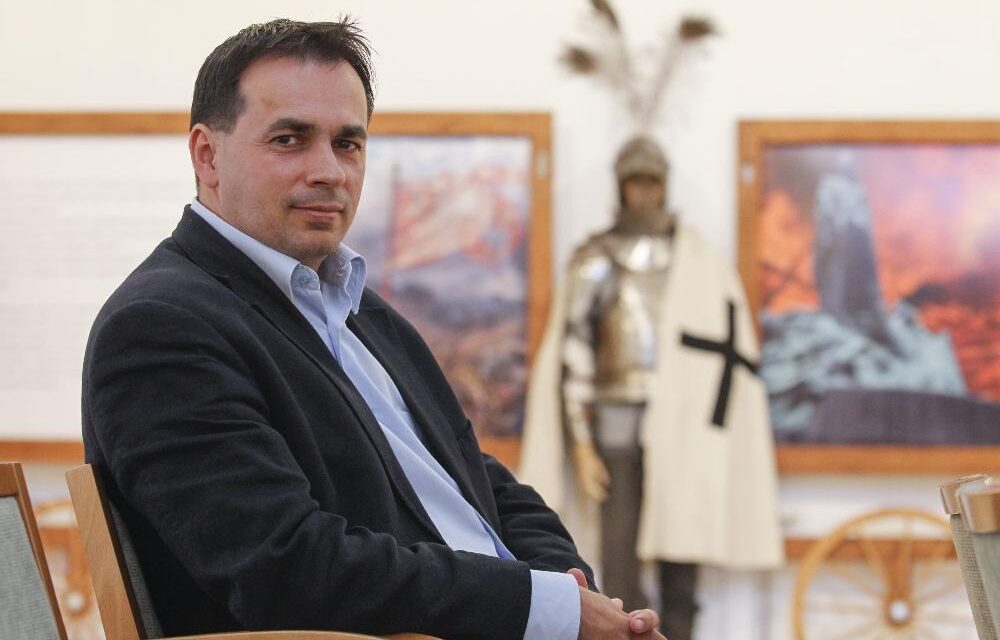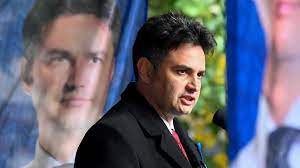What we represent is no longer taken for granted in contemporary literature. For our part, we stubbornly stick to national traditions, while not closing in on the past, we look at everything new with an open mind and a certain set of values. The two do not exclude each other, but they also strengthen each other in an exciting way - writer Mór Bán emphasized in his interview with civilek.info.
Two years ago, I talked with János Bán, better known as Mór Bán, writer, publicist, media manager, Hungarian laurel wreath winner and Ferenc Herczeg literary award winner, about his personal life, history, and creed. Now, in connection with the Holiday Book Week, I have reached out again, to revive the thoughts of that time and today's aspirations.
HB: I did my last interview with you in 2021. In the period since then, a lot has happened, the first two volumes of your Ezer rege könyve series, the first part of Hollófiak for the youth and several other publications were published. The 12th Hunyadi episode entitled: The Angel Above the Gates has been completed and published. What is the message of these stories?
Yes, it was quite a productive and fruitful period. The Hunyadi series - which we originally planned for ten volumes, now has 12 parts, and two more books are coming. Either way, this monumental stream of novels, which fortunately seems to be increasingly widely known and popular, is slowly coming to an end.
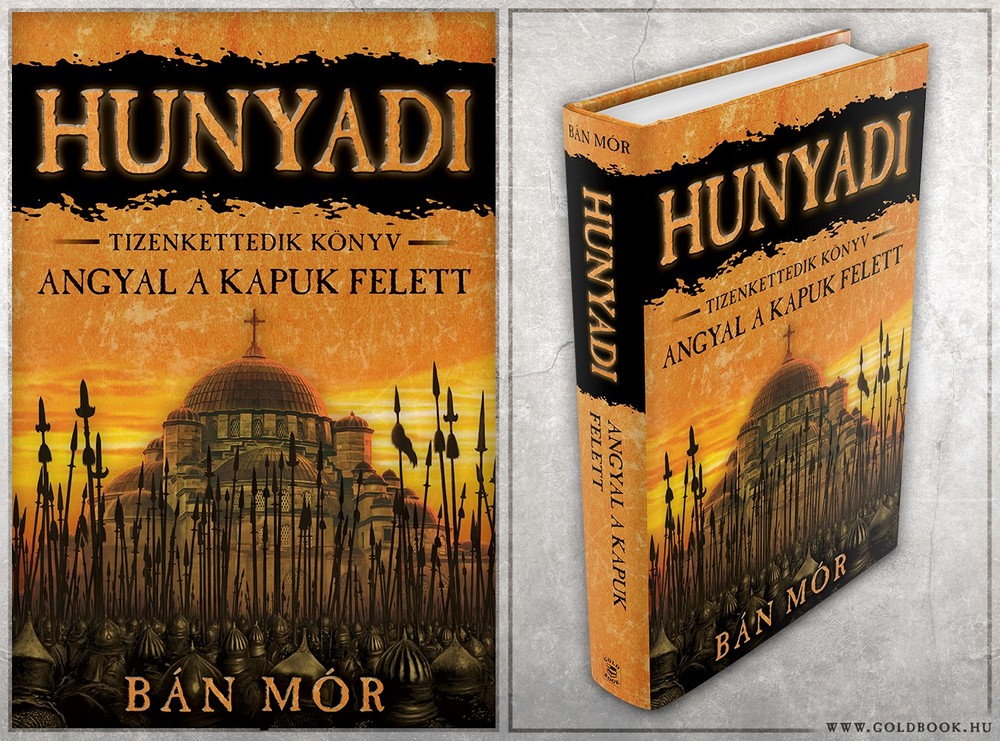
Photo: Gold Book Publishing Facebook
The life story of János Hunyadi appears in this series of novels as a huge, colorful fresco, where the reader not only sees the XV. you can get to know the conditions of Hungary in the 19th century, but also the thinking of the surrounding peoples, the Serbs, Havasalföldi, Moldavians, Czechs, Poles, as well as the decision-makers of the Western courts - Rome, Vienna, Milan. Just as the Turks' point of view also becomes understandable, but in such a way that, above all, the passion of protecting the Hungarian homeland imbues the actions of our protagonists. The 16th edition of the first part has just been published, and the total number of copies may be somewhere around three or four hundred thousand. By the end of the series, we'll probably exceed half a million copies sold... And as you mentioned, I've also started a few new series - well, it's not that I'm bored, rather because these are very important projects for me. One of them is the Hollófiak series you mentioned, the first volume of which has now been published by my own publisher, Vaskapu. This novel presents the educational adventures of Mátyás Hunyadi and László for young readers, with beautiful illustrations by Balázs Bodnár. This series builds on traditional, pure values: it tells stories about courage, brotherly love, affection, patriotism, in what I hope is an entertaining way. The book of a thousand rege is another, also huge undertaking, it collects and puts into a unified framework the huge vocabulary of Scythian times, the Eastern and Western Hun empires, and Hungarians. I hope this will be our rich Millennium. The first two volumes have already been published, and I am currently working on the Atilla tales.
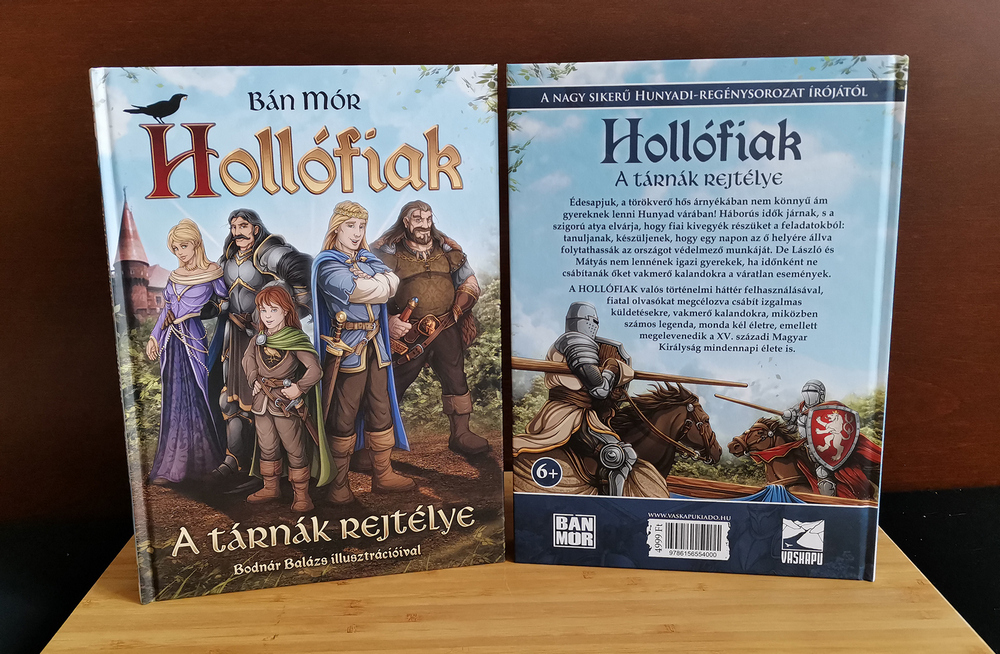
Photo: Vaskapu Publishing Facebook
A new literary circle, the Society of Different Writers, was founded recently. Representatives: Mór Bán, Zoltán Bene, László Domonkos, Vilmos Gál, Ferenc Gáspár, Ákos Jezsó, Ádám Pozsonyi, Zoltán Udvardy. In the particularity of the new Hungarian prose, they wanted to work in the spirit of goals that deeply respect tradition, have a deep national commitment, and proudly take on the noblest and most beautiful traditions of Hungarian literature, - read on Facebook. What are these traditions and why did you feel it necessary to form this circle? Do you define yourself against something or for something?
I could say that what we represent is no longer taken for granted in contemporary literature. For our part, we stubbornly stick to national traditions, while not closing in on the past, we look at everything new with an open mind and a certain set of values. The two are not mutually exclusive, but they also strengthen each other in an exciting way.
Has the liberal, aristocratic canon that looks down on everyone lost a bit of its positions? If so, how much of a role do other writers and historical novels play in this?
Rather, I see this process as the strengthening and expansion of everything that is outside the liberal canon. And that's right. It is not worth dealing with why "they" are the way they are, but only with "us" being as good as possible, reaching as many readers as possible, addressing them. Because anyone claims anything, their logic and ours are decisive even now. There are excellent and less excellent creators in both camps. And of course we also believe that together we can achieve more.
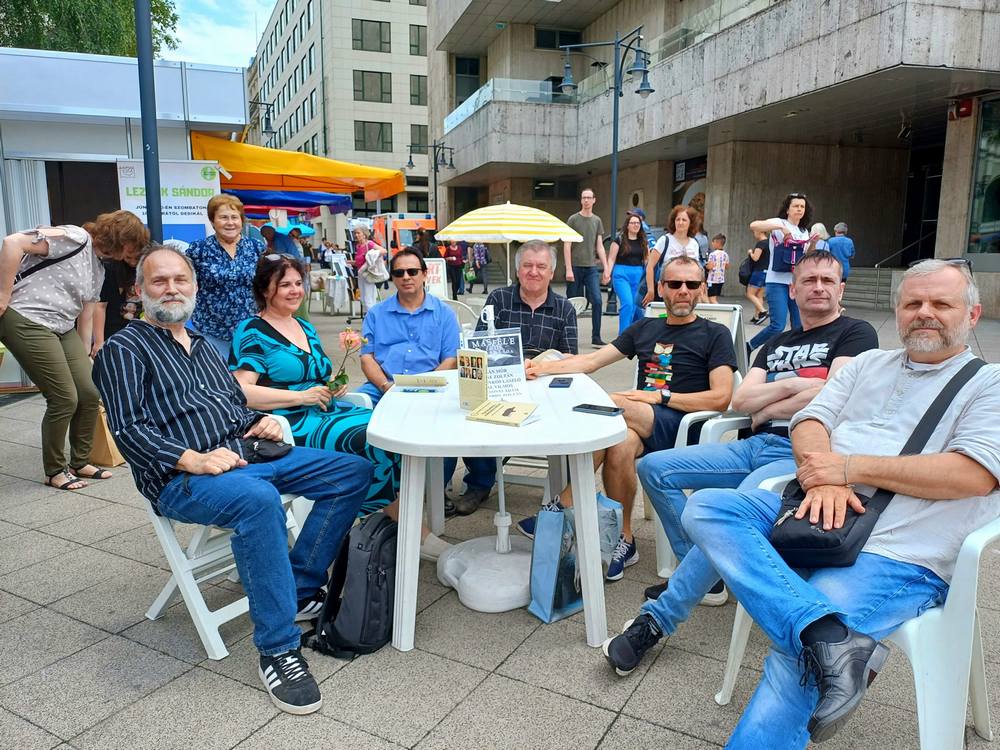
Source: IdőJel Publishing Facebook
You have also been running the M5 public service channel for almost 3 years. Your activities are characterized by programs such as Ez ettt a qällä, Fülssöveg, Libretto, and more could be listed. It is also clear from your film and program selections that you try to give opportunities to different voices, writers, directors and artists who are less adapted to a kind of inner-city taste are given more and more space. Am I seeing this correctly?
I'm not comparing what I do to the inner-city taste either, but to how much we have to bring in, how many tasks still await us to rebuild what was so consciously and with such deep disdain disappeared for decades. I think in terms of a solid, yet open and exciting national culture. For this, it is necessary to help and support the creators of the new generation, and to systematically fight against condescending emotions, and to open the field for those who have not been able to kick a ball until now, while at the same time preserving what we consider to be valuable from previous decades.
A huge international crew is filming a TV series from your Hunyadi novel stream. The people of the Internet have already seen one or two previews here and there. What was and is your role in this production and what is the purpose of this large-scale work?
For years, a team of writers created the scripts for the series. As much as I could, I helped their work and now, during the filming, I try to do the same. Which is not easy, since the TV adaptation breaks down and rebuilds the dramaturgy of my novels in a different dimension. It is an exciting process, sometimes with difficult moments, but based on the material so far, I am very confident in the success of the series, in the fact that this well-prepared and committed team will be able to bring the great life story of János Hunyadi to the international audience through an exciting, yet extremely instructive story.
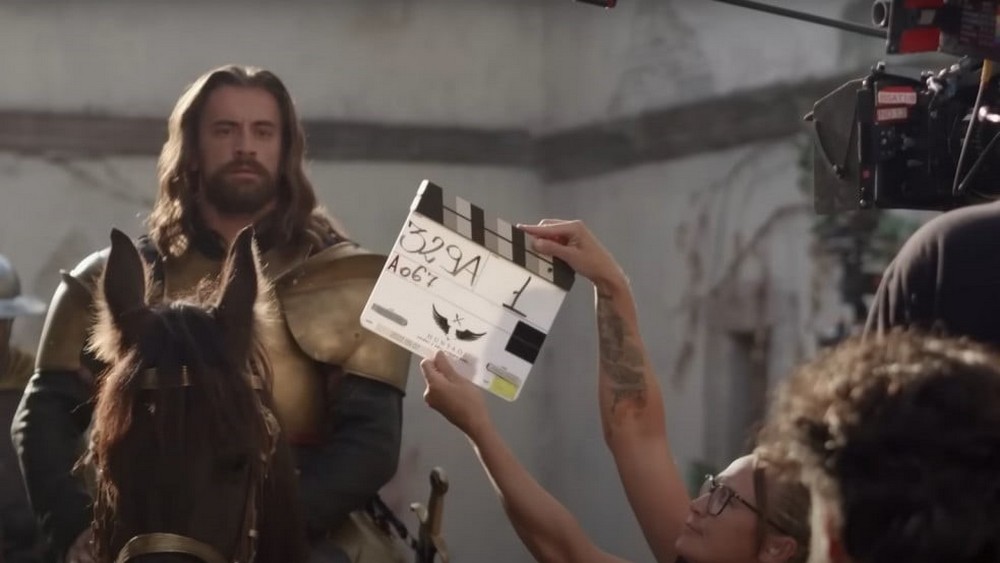
Staff photo
Two years ago, I asked the following question: It seems that in the last 60-70 years, an artistic aristocracy has emerged, which although proclaims itself to be tolerant, but at the same time almost "terrorizes" those artists who do not view the world from this ivory tower. They are happy to suggest that any narrative that talks about the successes, moral strength and solidarity of Hungarians is either weak or nationalistic or tendentious, and can still be improved. What can be done about it? How can talents emerge who do not feel bound by this kind of canon? What can be the new cord gauge?
Now after all this time, when you are really in the "thickness of the fight", how do you see this question? Do you already feel that the arts also have a "national fabric" and do the strands come together and strengthen each other in terms of the various genres?
For this, it would and will be necessary for those who believe in the renaissance of national culture to be able to unite. We need common funds, we need a national minimum, and the new generation needs to be given the opportunity as soon as possible. Along with the fact that it is not possible to bring in the cunning mine work of many decades in a few years. It is a difficult and inescapable question that the quality of the works and the aspects of the world view that I have mentioned are not in any way related to each other. It would be good if the two camps did not find solace in aristocratic seclusion and made some efforts to reach a rapprochement. I also like to read, watch and listen to the works of the creators of the site, which I don't like very much. And not only because even the ancients knew that "know your opponent", but also because it is appropriate to know and enjoy all good and valuable works of art.
Returning to Hunyadi, I am not very familiar with a writing enterprise of this size, neither in Hungarian nor in world literature. After all, you are only halfway through the XV. century family and political history, the books of László Hunyadi, Mátyás and János Korvin will be coming soon, so that you can return to the exposition of the first book: the terrible swamp after the loss of the battle of Mohács. Could it be up to 30 volumes?
I can't even think about it, because I wouldn't have the strength to continue. But basically yes: it's a huge historical tableau, and it would be great if you let me finish it one day. To get to the moment where, on the first page of the first volume, the framework story began with the Battle of Mohács. The story of János Hunyadi will end soon, this is an epic series that is rare in itself. If you manage to write the story of Mátyás and János Corvin, that is... I don't even dare to think about it...
Author: Béla Harcsa
Cover image: Mór Bán / Photo: fuzeshirek.hu

